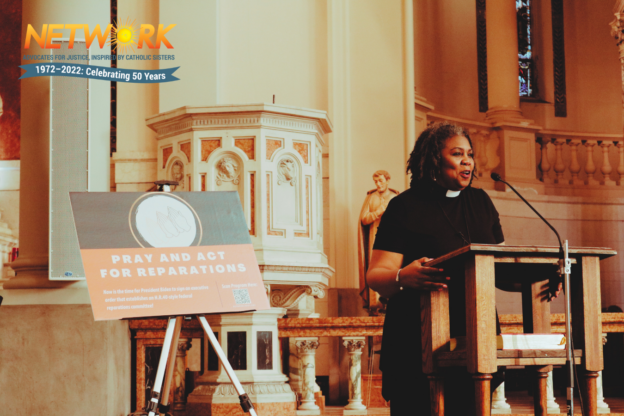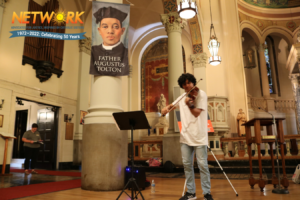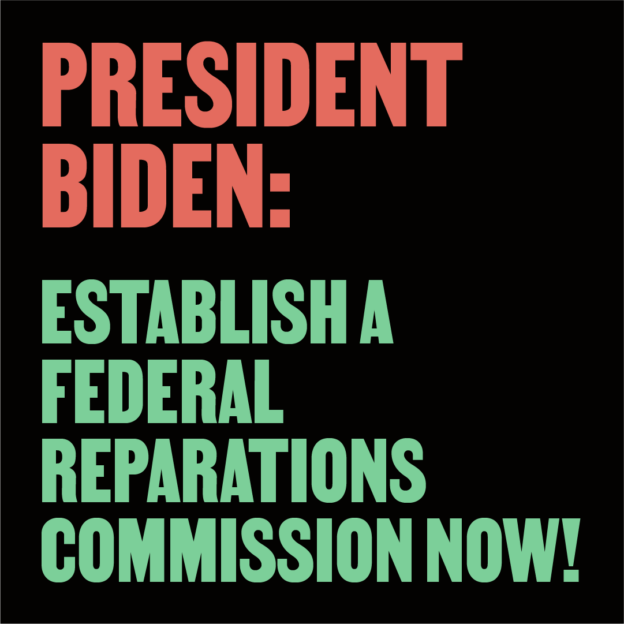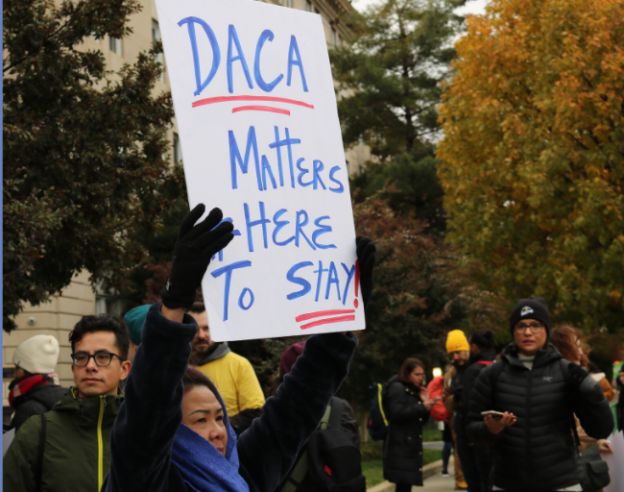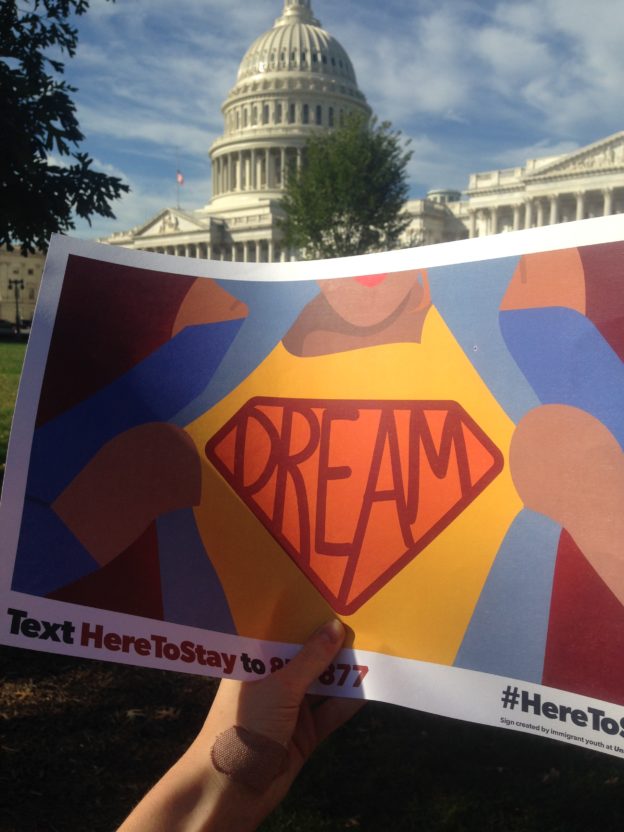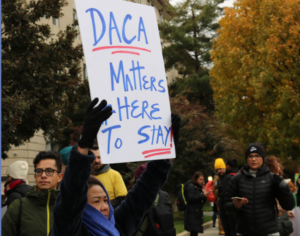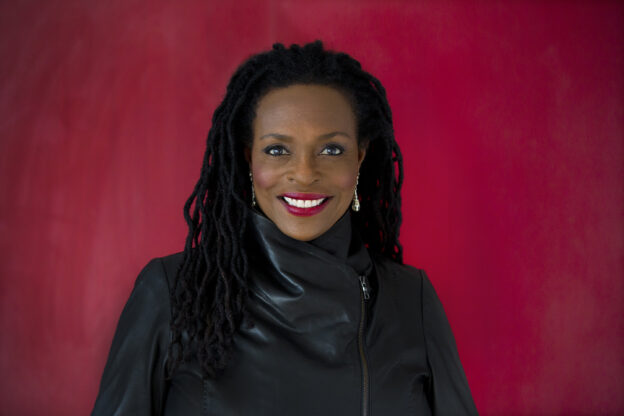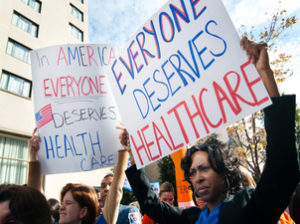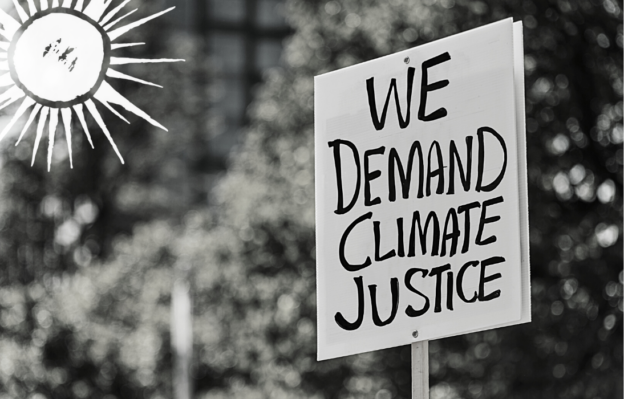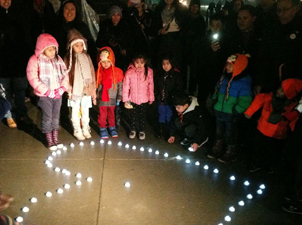
NETWORK’s Reparations Vigil in Cleveland Featured Reverend Traci Blackmon
Elissa Hackerson
June 17, 2022
NETWORK Lobby for Catholic Social Justice hosted Repair and Redress: A Vigil for Reparations (In-Person) on Wednesday, June 15, 2022 at St. Aloysius – St. Agatha Parish in Cleveland, OH. People in the parish church and school community, sisters, the Cleveland NETWORK Advocates Team, justice-seekers, and NETWORK staff made a powerful stand for reparations for Black Americans and called for an H.R.40-style reparations commission by Juneteenth. NETWORK’s reparations vigil in Cleveland featured Reverend Traci Blackmon, Associate General Minister, Justice and Local Church Ministries (United Church of Christ). The United Church of Christ shared a condensed video presentation of her remarks.
Rev. Blackmon’s stirring and powerful remarks spoke to the theological call to repair a society broken by the sin of chattel slavery and the racism that has followed in its wake and addressed society’s need to atone and provide redress. Rev. Blackmon declared that it is time to end government charity for Black people (giving fish) and deliver justice (equitable access to the lake).
NETWORK’s Build Anew agenda calls for a society where we all share equally in God’s abundance. For this to happen, our country’s laws, policies, and norms must:
- Dismantle Systemic Racism
- Cultivate Inclusive Community
- Root Our Economy in Solidarity
- Transform Our Politics
As Rev. Blackmon stated so clearly in her vigil remarks, “Reparations is about the church and the people and the society moving from charity to justice. Moving from hand out to hand up. Moving from simply offering to give someone a fish to giving them access to the lake so they can fish for themselves.”







